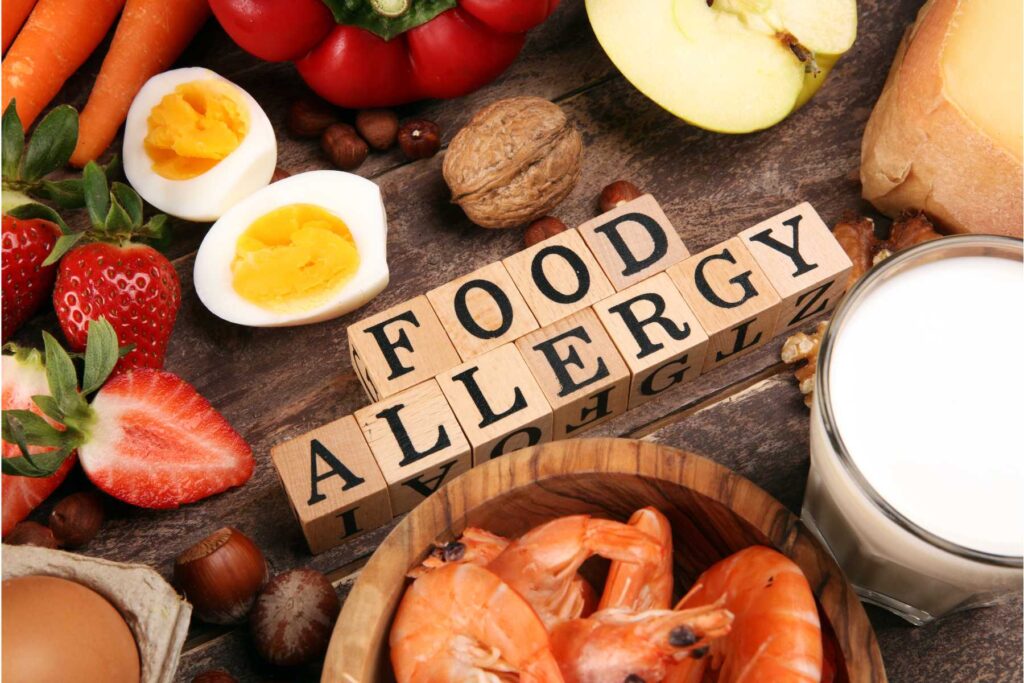Food Allergies: What Parents Need to Know

Food allergies are common complaints in CPCMG offices. Here is a recap of what you need to know about food allergies and food intolerance, who is likely to develop a food allergy, and what to do if you think your child has a food allergy.
What are the most common food allergies?
- Cow’s milk
- Peanuts
- Soy
- Egg
- Wheat
- Tree nuts
- Shellfish
- Fish
Know the difference: Food allergy vs. food intolerance
If your child has a food allergy, their immune system will overreact and produce antibodies called Immunoglobulin E (IgE). The IgE antibodies go to cells to create the allergic reaction which could include hives (an itchy rash), nausea and/or throwing up, congestion, coughing and wheezing. Allergic reactions can also be fatal. Your child’s physical reaction due to a food allergy will likely happen within minutes of eating a trigger food.
The bottom line: food allergies are related to the immune system.
Food intolerance is different. Your child’s sensitivity to a food may cause their digestive system to react. An example would be sensitivity to milk products – you child may have a stomachache after drinking milk, but this is a sign of lactose intolerance, not an allergy.
The bottom line: food intolerance is related to the digestive system.
What are the chances my child will have a food allergy?
About four to six percent of all children have a food allergy. If a parent has seasonal allergies, asthma or eczema, their kids are at greater risk for any allergic disease. If one of your children has a food allergy, it increases the chances your other children will also be allergic. If this applies to your family, talk to your pediatrician about introducing foods to a new baby.
The good news is that most children will outgrow their food allergy. Approximately 85 percent of allergies to cow’s milk, soy, egg and wheat will resolve by the time the child is 3 years old.
What if I think my child has a food allergy?
Stop giving the suspected food causing the reaction as well as others in the same category. The next step is to contact your CPCMG office to schedule an appointment. Based on their recommendations, you may be referred to a pediatric allergist who will help determine your child’s allergy.
How are food allergies treated?
The best treatment for food allergies is prevention. Unfortunately, accidental ingestions do happen. Make sure you talk to your CPCMG pediatrician about the signs and symptoms of an allergic reaction. If your child has a mild reaction, an oral antihistamine like cetirizine or loratadine should be given. If your child has more severe symptoms, this could be anaphylaxis. Your doctor will instruct you on what to watch for and when to use epinephrine.
What can I do to help prevent food allergies?
The good news is that there is evidence that some allergies can be prevented by early exposure. Giving your baby foods like peanut products when they are first learning to eat can prevent peanut allergy. Talk to your pediatrician to learn if this is appropriate for your baby.

